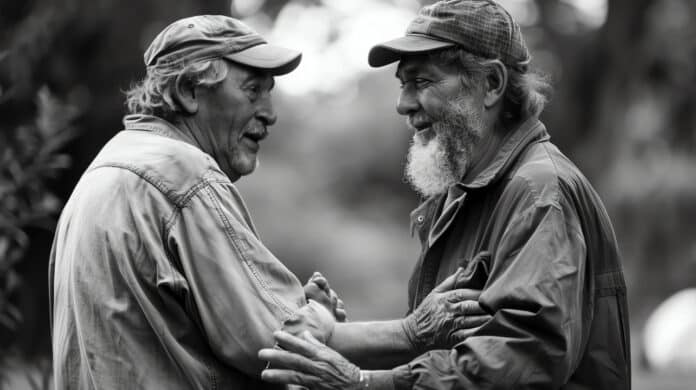Social relationships, including the rekindling of old friendships, are deeply intertwined with our happiness. The more diverse and numerous our friendships, the greater our overall well-being. While some relationships naturally ebb and flow, others may fade for various reasons, yet the potential for happiness in reconnecting remains.
Despite the ease of reinitiating contact, a recent study reveals a surprising commonality: people are often hesitant to do so. This reluctance is not limited to reconnecting with old acquaintances but also extends to initiating conversations with strangers. This finding underscores the shared experience of social hesitations.
Scientists in this study aimed to determine what stops other people from doing the same.
Dr. Gillian Sandstrom from the University of Sussex in Brighton (U.K.) said, “We live when people are increasingly disconnected and have fewer close friends than they used to in years past. And this is despite the multitude of modern-day communication channels available to us. With research finding that it takes more than 200 hours of contact to turn a new acquaintance into a close friend*, we wanted to find out if and why people were overlooking another pathway to meaningful connection: reviving pre-existing close friendships.”
The psychologists examined the attitudes of almost 2,500 participants in seven different studies about reaching out to old friends again, as well as the reasons and challenges that stand in their way. These challenges included not knowing what to say after a long period of no contact, fear of rejection, and uncertainty about whether the friendship could be rekindled. They also looked into whether particular interventions could motivate the participants to reach out to an old friend.
They found that 90% of the participants in the first study had lost touch with a someone they still care about. 70% were neutral or negative about the idea of reconnecting, even when they felt warmly about the friendship.
The psychologists performed a study to determine how many participants were genuinely willing to get in touch with an old buddy. They acknowledged that people can state intentions but only sometimes follow through with activities. Only around one-third of participants followed through, even though they wished to reconnect, thought their buddy would welcome it, had their contact information, and had enough time to write and send a message (28% in one study and 37% in another).
The psychologists asked individuals to rate their desire to carry out specific tasks right away, such as getting in touch with a friend they had lost touch with, to understand better this reluctance to reconnect. They found that participants were just as reluctant to pick up garbage or discuss with a stranger as they were to get back in touch with an old friend.
The primary obstacles mentioned were feeling uneasy after so much time had passed, feeling guilty, and fearing that their former acquaintance might not want to hear from them. Remarkably, the least common excuse for not contacting the old friend was feeling very busy—for the buddy and themselves.
Interestingly, participants thought there were very few good reasons to get back in touch, with the friend’s birthday ranking highest among them. Asking for a favor was considered to be the least likely reason to get in contact while reconnecting over a shared experience was the second most popular one.
However, the study also offers a glimmer of hope. By implementing specific interventions, such as practicing social interaction within existing networks, the reluctance to reconnect can be overcome. This finding suggests that with the right strategies, individuals can take active steps towards rekindling old friendships, potentially leading to increased happiness.
Sandstrom explained: “Interestingly, despite people telling us that a critical barrier to making contact with an old friend was concerned over how the message might be received, the intervention we devised to help overcome this anxiety had little effect.
“Given that participants were as hesitant to reach out to a stranger as someone they had previously been close with, we drew inspiration from previous research I had conducted on talking to strangers, which found that practice made progress. When people were given time to practice in a situation that felt more comfortable, namely by sending messages to current friends, they were much more likely to leap to messaging someone they had lost touch with.”
Professor Lara Aknin from SFU adds, ” Decades of research have shown that social relationships are a key source of happiness and meaning in our lives.
“Gillian and I are old friends, dating back to our time as PhD students in Canada. We’ve been in touch on and off ever since, but we most recently reconnected on New Year’s Day 2022 when I emailed her to say that I missed her and wanted to collaborate on a new project. We took inspiration from our period of disconnection and decided to study if and when people are willing to reach out to old friends.
“We hope these findings prompt other people to send that first message to someone they miss in their lives.”
Journal Reference:
- Lara B. Aknin, Gillian M. Sandstrom. People need to be more hesitant to reach out to old friends. Communications Psychology, 2024; 2 (1) DOI: 10.1038/s44271-024-00075-8
